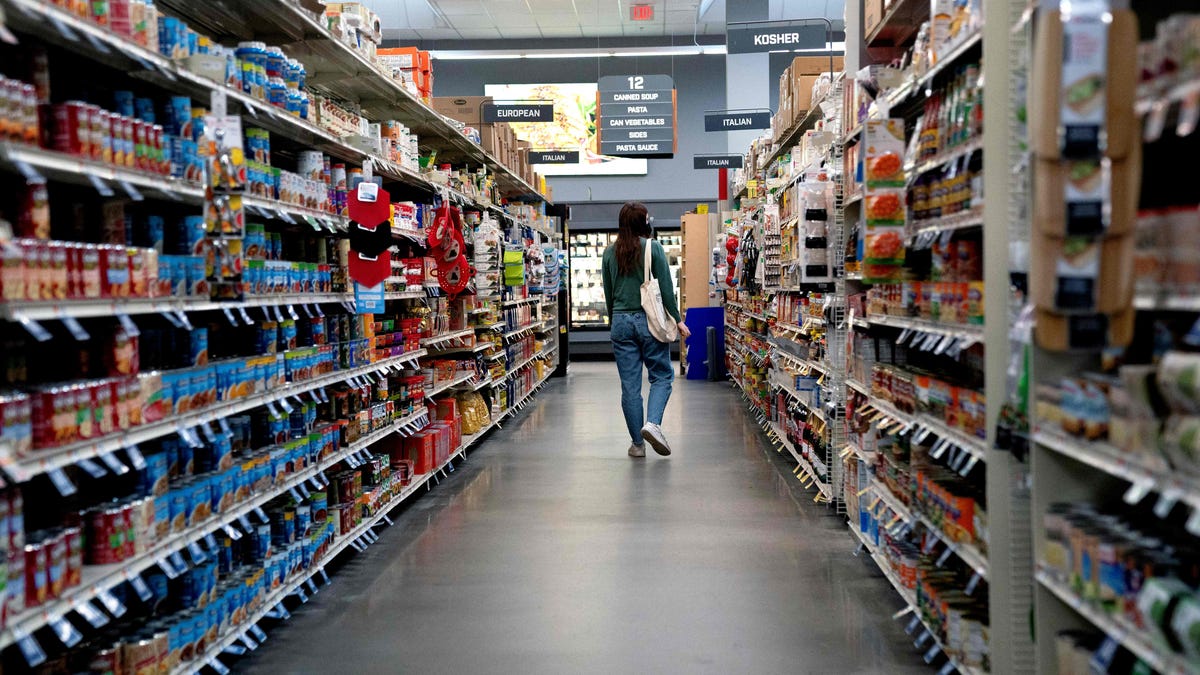What is ‘price gouging’ and how is Harris addressing it in grocery stores?
Kamala Harris, the Democratic presidential nominee, is likely to unveil strategies to tackle food inflation by proposing a nationwide ban on price gouging in grocery stores. However, experts are divided on how effective this measure will be for everyday Americans.
The Biden administration has pointed fingers at corporate greed as a key factor in the increase of inflation over recent years. Harris is set to echo these sentiments in her address on Friday in Raleigh, North Carolina. According to the administration, corporations hiked prices amid pandemic-induced supply chain disruptions and have yet to reduce them even after conditions normalized.
The White House noted in a March statement, “Some companies continue to keep prices elevated even though input costs are decreasing and supply chains are beginning to stabilize.”
If price hikes on groceries are tied to possible mergers among major supermarkets and producers and corporate greed, Harris’ plans could be beneficial. Nonetheless, several economists express skepticism about the efficacy of this policy, questioning whether price gouging is genuinely a primary cause of inflation.
Michael Ashton, managing principal at Enduring Investments LLC, who focuses on inflation analysis, expressed doubt over the presence of price gouging in what he describes as a highly competitive grocery sector.
“Why did price gouging suddenly become an issue in 2021-22?” he questioned. “Did grocery retailers only realize they had this leverage then, or were they simply not greedy before 2021?”
Typically, profit margins in the food sector are quite low. In 2023, the grocery industry recorded a net profit margin of just 1.6%, the lowest since 2019, as reported by FMI, The Food Industry Association.
What led to the spike in food prices?
Economists generally agreed that during the pandemic, price increases were primarily due to supply chain shortages.
Once supply chains were resolved, a debate arose. Insight from the Federal Reserve Bank of Kansas City and former Federal Reserve Chairman Ben Bernanke indicated last year that rapidly increasing wages post-economic reopening contributed significantly to rising grocery prices.
Conversely, groups like Accountable.US and former Labor Secretary Robert Reich argue that companies have been jacking up prices to benefit shareholders through dividends and stock purchases.
“Consumers are being taken advantage of, as corporations mislead Wall Street into thinking they can maintain inflated prices and profits,” Reich stated in June.
The Groundwork Collaborative, a nonprofit, similarly pointed to elements like “climate change, corporate consolidation, and profiteering” as reasons behind persistently high grocery prices. Earlier this year, they estimated that corporate greed accounted for nearly half of the inflation, and over a third since the pandemic began.
“The industry is continuously pushing boundaries to maximize profits and provide substantial payouts to shareholders, yet consumers are fed up,” remarked Liz Zelnick, director of the economic security & corporate power program at Accountable.US, in a press statement.
Will Harris’ proposal effectively lower food prices?
There are differing opinions on this issue.
Reich, who sees corporate greed as a primary driver of escalating inflation, supports a policy similar to what Harris is expected to propose.
“We need to hold big corporations accountable for high prices,” he noted. “Take a stand against them: Denounce their price gouging and threaten them with antitrust measures, price-gouging lawsuits, and even price regulations. Criticize their hefty profits and rewards for executives while hurting consumers.”
On the flip side, figures like Sen. Rick Scott, R-Fla., label the plan as “federal price controls,” arguing that such measures are ineffective.
Scott stated that Harris’ approach to combatting inflation represents “extreme government interference,” suggesting that it disrupts American businesses and leads to supply shortages.
Additionally, implementing such a policy may pose challenges since defining a fair profit margin could be complex, according to James Knightley, chief international economist at ING bank.
Sarah Gallo, senior vice president of product policy at the Consumer Brands Association trade group, emphasized the importance of understanding the economic facts rather than succumbing to political statements. “The truth is, there are numerous intricate economic factors at play,” she said.
Is food inflation still relevant?
A survey conducted by the left-leaning polling and research organization Navigator Research, which involved 1,000 registered voters, revealed that three out of five Americans believe corporate greed significantly contributes to inflation. However, this data was collected in January when the annual inflation rate was at 3.1%. Since that time, inflation has decreased even further.
“While the inflation situation appears better now, consumer perceptions differ since prices remain high,” Knightley explained. “We are unlikely to see prices back at 2019 levels,” which is what consumers are using as a benchmark.
Inflation is an indicator of the rate at which prices change, but actual prices are still elevated due to their rise over the past couple of years. In the twelve months leading up to July, inflation was at 2.9%, significantly down from a peak of 9.1% in June 2022, representing the lowest point since March 2021. Overall, food inflation increased by a modest 2.2%, and grocery prices crept up at an even slower rate of 1.1%.
“Why take action?” Knightley asked. “From an economic standpoint, things seem stable right now. This may be a useful message for upcoming elections, but inflation might not be a pressing issue anymore.”

